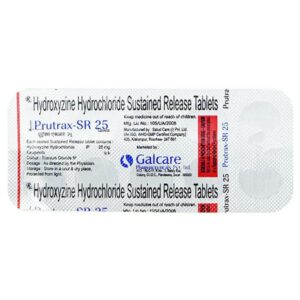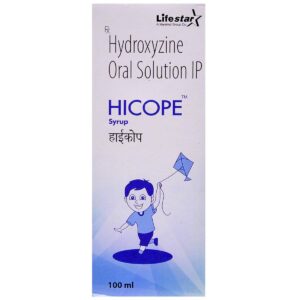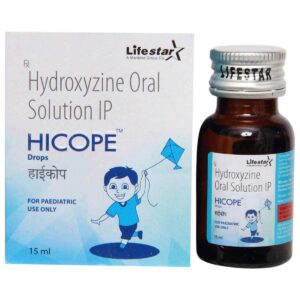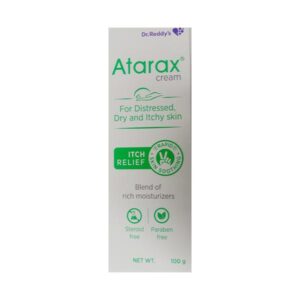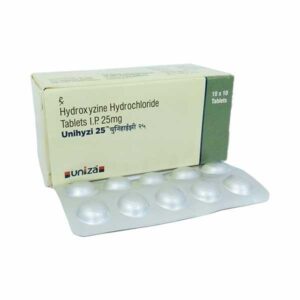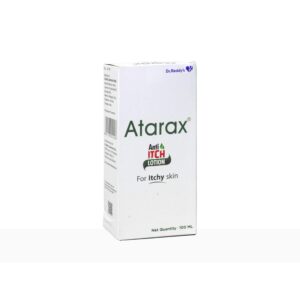HYDROXYZINE
HYDROXYZINE: Hydroxyzine is an antihistamine medication used to treat various allergic conditions such as itching, hives, and dermatitis. It may also be used for anxiety and tension relief.
The drug works by blocking the action of histamine, a substance released by the body during an allergic reaction. By inhibiting the effects of histamine, hydroxyzine can relieve itching and reduce other allergic symptoms.
The dosage of hydroxyzine varies depending on the condition being treated and the age of the patient. For allergic reactions, the typical oral dose for adults is 25 to 100 mg divided into multiple doses throughout the day. For anxiety relief, the oral dose is usually 50 to 100 mg four times daily. It is important to follow the doctor’s instructions regarding the appropriate dose and duration of treatment.
Common side effects of hydroxyzine include drowsiness, dizziness, dry mouth, constipation, and blurred vision. These effects are generally mild, but if they persist or become bothersome, it is recommended to consult with a healthcare professional. In rare cases, hydroxyzine may cause more serious side effects such as irregular heartbeat, tremors, or seizures. It is important to promptly seek medical attention if any of these occur.
It’s worth noting that hydroxyzine can enhance the sedative effects of other medications or substances that depress the central nervous system, such as alcohol, tranquilizers, or sleep aids. Therefore, it is important to disclose all other medications being taken to the healthcare provider to avoid potential drug interactions.
Overall, hydroxyzine is a commonly used medication for allergic conditions and anxiety relief. However, it should only be taken as prescribed by a qualified healthcare professional and its potential risks and benefits should be evaluated on an individual basis.

